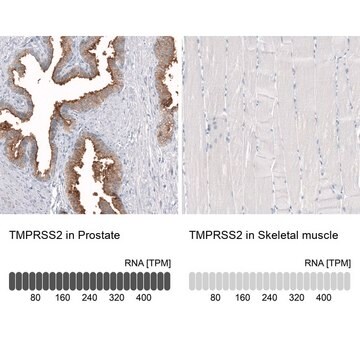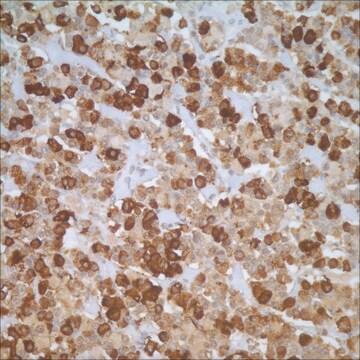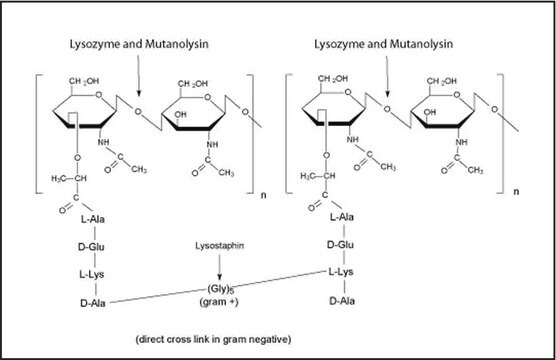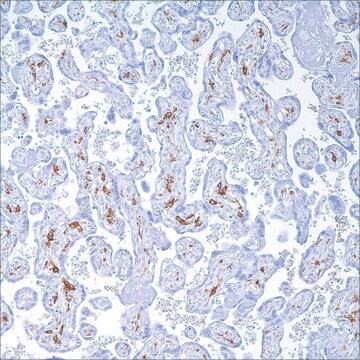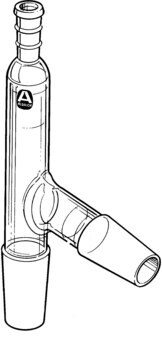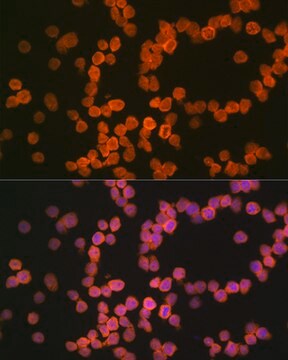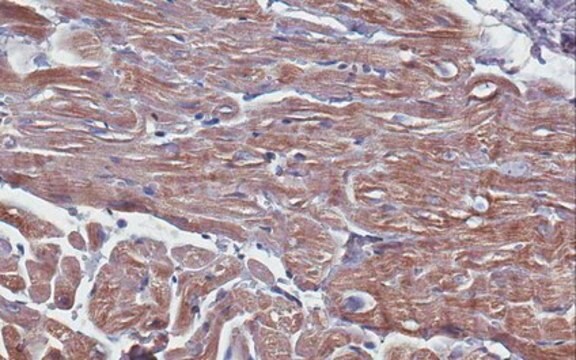推荐产品
生物源
mouse
抗體表格
purified antibody
抗體產品種類
primary antibodies
無性繁殖
P5H9-A3, monoclonal
物種活性
human
包裝
antibody small pack of 25 μg
技術
ELISA: suitable
immunohistochemistry: suitable (paraffin)
western blot: suitable
同型
IgG1κ
UniProt登錄號
目標翻譯後修改
unmodified
基因資訊
human ... TMPRSS2(7113)
一般說明
Transmembrane protease serine 2 (UniProt: O15393; also known as Serine protease 10, TMPRSS2) is encoded by the TMPRSS2 (also known as PRSS10) gene (Gene ID: 7113) in human. TMPRSS2 is a single-pass type II membrane protein of the peptidase S1 family that is shown to proteolytically cleave and activate the viral spike glycoproteins, which facilitate virus-cell membrane fusions. It is shown to facilitate human SARS coronavirus (SARS-CoV) infection via two independent mechanisms, proteolytic cleavage of ACE2 that promotes viral uptake and cleavage of coronavirus spike glycoprotein, which activates the glycoprotein for cathepsin L-independent host cell entry. TMPRSS2 is highly expressed in the prostate tissue and lower expression levels are observed in the epithelia of the colon, stomach, epididymis and breast tissue. Some expression has also been reported in pancreatic acini, hepatic bile ducts, testicular Leydig cells and the kidney. Its expression levels are significantly elevated in both neoplastic prostate and in the epithelium of prostatic hyperplasia. TMPRSS2 has a cytoplasmic domain (aa 1-84), a transmembrane domain (aa 85-105), and an extracellular domain (aa 106-492). Its peptidase S1 domain is localized to amino acids 256-489. It is reported to be proteolytically processed by an autocatalytic mechanism generating the transmembrane protease serine 2 non-catalytic chain (1-255) and the transmembrane protease serine 2 catalytic chain (256-492). Two isoforms of TMPRSS2 have been described that are produced by alternative splicing.
特異性
Clone P5H9-A3 specifically detects human Transmembrane protease serine 2. It targets an epitope with in the extracellular serine protease domain.
免疫原
KLH-conjugated linear peptide corresponding to 16 amino acids from the extracellular domain of human transmembrane protease serine 2.
應用
Anti-TMPRSS2, clone P5H9-A3, Cat. No. MABF2158, is a mouse monoclonal antibody that detects Transmembrane protease serine 2 and has been tested for use in ELISA, Immunohistochemistry (Paraffin), and Western Blotting.
Immunohistochemistry (Paraffin) Analysis: 1:50 dilution from a representative lot detected TMPRSS2 in human kidney tissue sections.
Enzyme Immunoassay (ELISA) Analysis: A representative lot detected TMPRSS2 in ELISA applications (Lucas, J.M., et. al. (2008). J Pathol. 215(2):118-25).
Western Blotting Analysis: A representative lot detected TMPRSS2 in Western Blotting applications (Lucas, J.M., et. al. (2008). J Pathol. 215(2):118-25).
Immunohistochemistry (Paraffin) Analysis: A representative lot detected TMPRSS2 in Immunohistochemistry applications (Lucas, J.M., et. al. (2008). J Pathol. 215(2):118-25; Bertram, S., et. al. (2012). PLoS One. 7(4):e35876).
Enzyme Immunoassay (ELISA) Analysis: A representative lot detected TMPRSS2 in ELISA applications (Lucas, J.M., et. al. (2008). J Pathol. 215(2):118-25).
Western Blotting Analysis: A representative lot detected TMPRSS2 in Western Blotting applications (Lucas, J.M., et. al. (2008). J Pathol. 215(2):118-25).
Immunohistochemistry (Paraffin) Analysis: A representative lot detected TMPRSS2 in Immunohistochemistry applications (Lucas, J.M., et. al. (2008). J Pathol. 215(2):118-25; Bertram, S., et. al. (2012). PLoS One. 7(4):e35876).
Research Category
Inflammation & Immunology
Inflammation & Immunology
品質
Evaluated by Immunohistochemistry (Paraffin) in human prostate tissue sections.
Immunohistochemistry (Paraffin) Analysis: 1:250 dilution of this antibody detected TMPRSS2 in human prostate tissue sections.
Immunohistochemistry (Paraffin) Analysis: 1:250 dilution of this antibody detected TMPRSS2 in human prostate tissue sections.
標靶描述
53.86 kDa calculated.
外觀
Protein G purified
Format: Purified
Purified mouse monoclonal antibody IgG1 in buffer containing 0.1 M Tris-Glycine (pH 7.4), 150 mM NaCl with 0.05% sodium azide.
儲存和穩定性
Stable for 1 year at 2-8°C from date of receipt.
其他說明
Concentration: Please refer to lot specific datasheet.
免責聲明
Unless otherwise stated in our catalog or other company documentation accompanying the product(s), our products are intended for research use only and are not to be used for any other purpose, which includes but is not limited to, unauthorized commercial uses, in vitro diagnostic uses, ex vivo or in vivo therapeutic uses or any type of consumption or application to humans or animals.
未找到合适的产品?
试试我们的产品选型工具.
Lanlan Zhou et al.
bioRxiv : the preprint server for biology (2020-08-15)
COVID-19 affects vulnerable populations including elderly individuals and patients with cancer. Natural Killer (NK) cells and innate-immune TRAIL suppress transformed and virally-infected cells. ACE2, and TMPRSS2 protease promote SARS-CoV-2 infectivity, while inflammatory cytokines IL-6, or G-CSF worsen COVID-19 severity. We
Lanlan Zhou et al.
Oncotarget, 11(46), 4201-4223 (2020-11-28)
COVID-19 affects vulnerable populations including elderly individuals and patients with cancer. Natural Killer (NK) cells and innate-immune TRAIL suppress transformed and virally-infected cells. ACE2, and TMPRSS2 protease promote SARS-CoV-2 infectivity, while inflammatory cytokines IL-6, or G-CSF worsen COVID-19 severity. We
Tsuguhisa Nakayama et al.
Cell reports. Medicine, 2(10), 100421-100421 (2021-10-05)
Understanding viral tropism is an essential step toward reducing severe acute respiratory syndrome coronavirus 2 (SARS-CoV-2) transmission, decreasing mortality from coronavirus disease 2019 (COVID-19) and limiting opportunities for mutant strains to arise. Currently, little is known about the extent to
Marc A Schneider et al.
International journal of oncology, 60(4) (2022-02-26)
Transmembrane serine protease 2 (TMPRSS2) has been intensively investigated during the current Sars‑CoV‑2 pandemic as a virus activating protease. Furthermore, TMPRSS2 is an oncogenic gene associated with several cancer entities. Co‑expression of TMPRSS2 and serpin family A member 1 (SERPINA1) (encoding alpha‑1‑antitrypsin;
我们的科学家团队拥有各种研究领域经验,包括生命科学、材料科学、化学合成、色谱、分析及许多其他领域.
联系技术服务部门